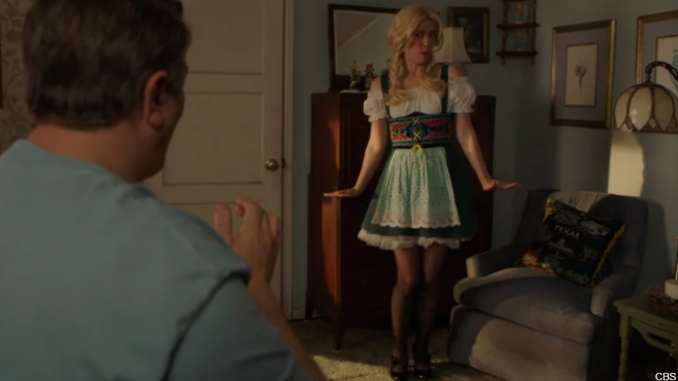
Introduction: The Evolution of George Sr.’s Character
There are some major differences between The Big Bang Theory and its prequel series, Young Sheldon. While the former leaned on quirky humor and geeky pop culture references, Young Sheldon took a heartfelt dive into Sheldon Cooper’s childhood, giving us a richer understanding of his family dynamics. One of the biggest and most controversial changes involved George Cooper Sr., Sheldon’s father.
On The Big Bang Theory, George Sr. was painted as an alcoholic, neglectful parent with infidelity issues. But Young Sheldon turned this narrative on its head, revealing a more nuanced and loving portrayal of the character. Let’s explore how this dramatic retcon changed the trajectory of the series and deepened the Cooper family story.
The Initial Portrayal of George Sr. in The Big Bang Theory
Sheldon’s Memories of George Sr.
In The Big Bang Theory, Sheldon frequently described his father as a flawed man. He mentioned George Sr.’s alleged cheating and lack of involvement in his children’s lives. These anecdotes shaped viewers’ perception of George Sr. as an antagonist in Sheldon’s upbringing.
Sheldon’s Three-Knock Habit
One of the most vivid moments was when Sheldon explained his habit of knocking three times. He attributed it to walking in on his father cheating on his mother, a memory that left a lasting scar on him. This storyline became a critical piece of The Big Bang Theory’s lore.
Rewriting History: George Sr.’s Character in Young Sheldon
A Loving Yet Flawed Father
Young Sheldon introduced audiences to a very different George Sr., played by Lance Barber. Instead of the neglectful figure Sheldon described, George Sr. was portrayed as a hardworking, loving father who often struggled to connect with his genius son but genuinely tried his best.
Humanizing George Sr.
The show depicted George Sr. as a man balancing his responsibilities while dealing with the challenges of raising an extraordinary child like Sheldon. His moments of vulnerability and humor made him a fan favorite, challenging the negative image from The Big Bang Theory.
The Controversial Retcon: George Sr. Didn’t Cheat
The Misunderstanding That Changed Everything
In Young Sheldon, the writers revealed that the infamous “cheating incident” was actually a misunderstanding. In the episode Ants on a Log and a Cheating Winker, young Sheldon mistakenly believed his father was with another woman. In reality, George Sr. and Mary were role-playing as part of their marital fun.
Fans React to the Change
This retcon sparked mixed reactions. Some fans felt it undermined Sheldon’s stories from The Big Bang Theory, while others appreciated the more sympathetic take on George Sr. It showcased the unreliable nature of memory and how misunderstandings can shape perceptions.
Why the Retcon Was Necessary
Balancing Two Narratives
The creators of Young Sheldon had to navigate the challenges of staying true to The Big Bang Theory while creating a compelling standalone story. A purely negative portrayal of George Sr. wouldn’t have fit the tone of the prequel, which leaned into family dynamics and emotional depth.
Sheldon’s Perspective vs. Reality
The retcon highlighted a deeper truth about Sheldon’s character: his memories are subjective. As a child, Sheldon misunderstood his father’s actions, and his biased view carried into adulthood.
How This Change Enriched Young Sheldon
A More Complex Family Dynamic
By redeeming George Sr., Young Sheldon added layers to the Cooper family’s story. The tension between Sheldon’s genius and his father’s blue-collar values became a cornerstone of the show, making their relationship more relatable.
An Emotional Payoff
When George Sr.’s death finally occurred in Young Sheldon, it hit harder because of the audience’s connection to the character. His death wasn’t just a plot device; it was a heartbreaking moment that underscored the show’s themes of family and loss.
The Impact on The Big Bang Theory
Rethinking Sheldon’s Narration
The retcon prompted fans to reconsider Sheldon’s reliability as a narrator. It also shed light on his emotional struggles and how they influenced his adult relationships.
Adding Depth to Sheldon’s Character
This change enriched Sheldon’s arc across both shows. It made his quirks and coping mechanisms more understandable, showing how his childhood shaped his identity.
Conclusion: A Risk That Paid Off
Young Sheldon’s decision to rewrite George Sr.’s narrative was a bold move that paid off. It transformed a one-dimensional character into a relatable and endearing figure, while also adding depth to Sheldon’s backstory. By humanizing George Sr., the show created a richer, more nuanced portrayal of the Cooper family that resonated with fans.
FAQs
1. Why did Young Sheldon change George Sr.’s story?
The creators wanted to make Young Sheldon a standalone story with emotional depth, which required humanizing George Sr. instead of following the negative portrayal from The Big Bang Theory.
2. How did fans react to the retcon?
Reactions were mixed. Some fans appreciated the change, while others felt it conflicted with the established narrative of The Big Bang Theory.
3. Did George Sr. cheat in Young Sheldon?
No, the show revealed that Sheldon’s belief in his father’s infidelity was a misunderstanding.
4. How did George Sr.’s death impact Young Sheldon?
His death was a pivotal moment that brought emotional closure to the series and showcased the fragility of family relationships.
5. What does the retcon say about Sheldon’s character?
It highlights Sheldon’s unreliability as a narrator and the way childhood misunderstandings can shape adult perceptions.